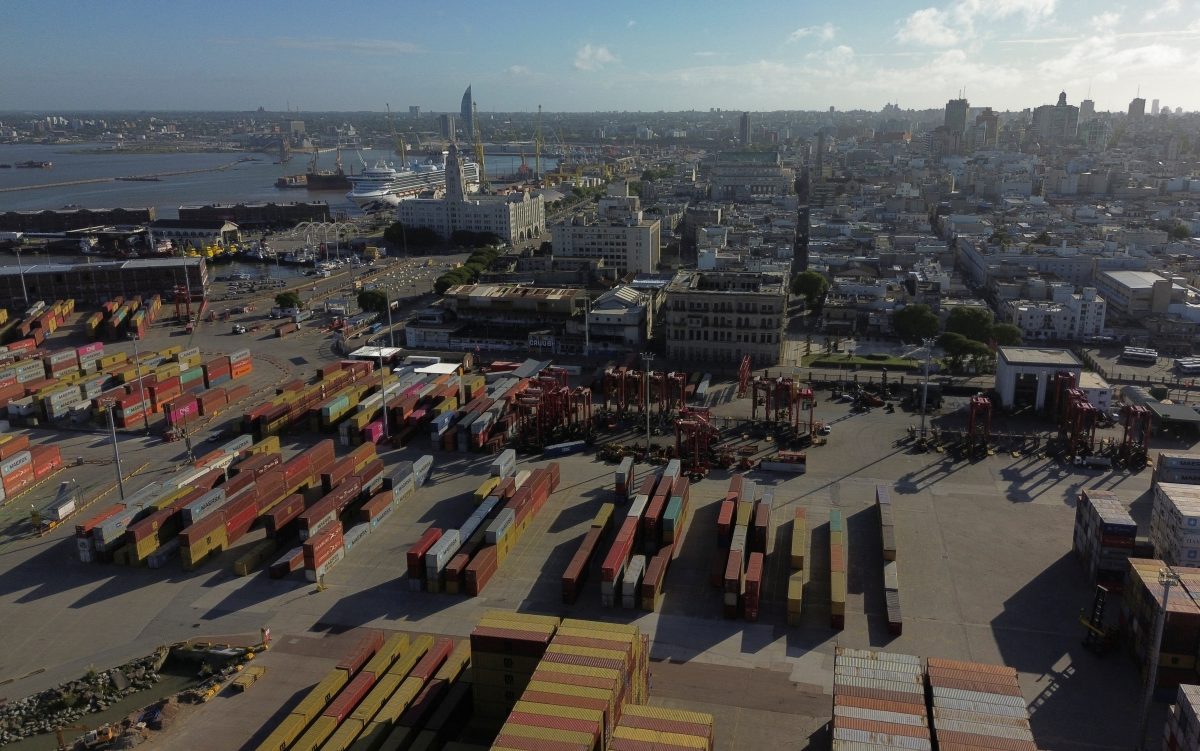MONTEVIDEO, (Reuters) – Uruguay’s main port received two cargo scanners sixteen years ago to detect drugs and other suspicious loads. Unfortunately, during delivery one of them fell into the sea.
Since then, cocaine shipments to Europe have surged through the port of Montevideo, which handled a record 1.1 million containers last year, fueling a rise in gang violence and undermining Uruguay’s reputation as a beacon of stability in turbulent South America.
Uruguay, a small, affluent nation sandwiched between Brazil and Argentina, is desperate for help.
The U.S. Drug Enforcement Administration (DEA) shuttered its Montevideo office in 2019 after years of strained ties with local law enforcement, four former DEA officials said. The details of the DEA’s exit are previously unreported.
Uruguay’s current center-right government, which took office the following year, has repeatedly asked the DEA to return but U.S. officials say there are no imminent plans to do so.
Three former DEA officials told Reuters that – with Washington focused on fentanyl flooding its borders from Mexico and little of the cocaine that transits through Uruguay heading to the United States – there’s scant appetite for seeking congressional approval to re-open a Montevideo office.
“Everything’s fentanyl now,” said former DEA official Larry Reichner, who oversaw Uruguay as the DEA’s assistant regional director for southern South America from 2015-2019. “They couldn’t give a rat’s ass about cocaine.”
The DEA declined to comment.
European nations, which receive the bulk of the cocaine passing through Uruguay, also have a limited counter-narcotics presence here. Spain is the only European country with a permanent police attache in Montevideo.
Reuters spoke with over two dozen current and former U.S., European and Uruguayan cops, as well as local officials, lawmakers and foreign diplomats. They said Uruguay is in a precarious position, fighting a lonely battle against cocaine smuggling gangs that have expanded into every corner of Latin America over the last decade, turning once-tranquil nations like Ecuador into cartel badlands.
Uruguay, home to 3.4 million people, suffered a record 426 murders in 2018. Violence has remained high ever since with grisly turf battles between small drug-dealing clans shocking a country largely unaccustomed to gang violence.
With 382 people killed last year, President Luis Lacalle Pou is struggling to defend his government’s security record ahead of a general election in October, while some far-right lawmakers are calling for troops on the streets.
“We have a problem,” said Mario Layera, Uruguay’s police chief from 2016-20, who led the force when the DEA left. “Cocaine is a problem.”
Nicolás Martinelli, Uruguay’s interior minister, told Reuters that Lacalle Pou’s government had repeatedly asked the DEA to return but has yet to get a positive response. He said he was pleased Argentina-based DEA agents are now visiting Montevideo twice a week, up from once every two weeks.
A DEA office is no panacea. Several Latin American nations have a deadly drug problem despite a strong DEA presence. Still, Martinelli said his country is desperate for U.S. equipment and expertise; he lamented that Uruguay’s status as a high-income nation excludes it from U.S. counter-narcotics donations.
“Uruguay remains a valued DEA partner,” a DEA spokesperson said. “We continue to actively explore new opportunities to expand our efforts to dismantle transnational criminal organizations operating worldwide.”
DENIAL
Nelson Vargas, who ran the DEA’s Montevideo office from 2013-2017, said “it was kind of cloak and dagger” when he arrived, with local cops wary of working with the DEA.
Politics played a part. Leftist governments ruled Uruguay from 2005-2020, and their negative view of U.S. policy towards Latin America – including support for the country’s 1973-85 dictatorship – hindered counter-narcotics collaboration, Layera, Martinelli and U.S. sources said.
Uruguay’s proud reputation as a regional role model bred complacency, two current and four former U.S. officials said. Authorities were in denial about the scale of cocaine moving through their country, they said.
Uruguay seized over 2 metric tonnes of cocaine in 2021, according to United Nations data, up over 1,300% compared with the 144 kgs apprehended in 2017.
In 2019, when Germany seized a record 1 billion euro haul of cocaine in a soybean shipment from Montevideo, the Uruguayans didn’t believe the drugs originated in their country, initially claiming they were loaded in Brazil, two ex-DEA agents said.
“For Uruguay, I think it was their heads in the sand, you know: ‘This is not happening,'” said a former Montevideo DEA chief, speaking on condition of anonymity to discuss his past work. “But the reality was that it was happening, and I think it had been going on for a while.”
Layera, the police chief under the former leftist administration, said investigators ultimately confirmed the cocaine originated in Montevideo. A Uruguayan businessman called Martin Mutio last year received a 15-year sentence for trafficking the load. His lawyers didn’t respond to requests for comment.
Martinelli described the previous government as “naive” on public security. He said Montevideo’s port remains ill-equipped to inspect the container flow.
Three more cargo scanners, bought by the current government, will arrive in April to supplement the X-ray machine donated by China in 2008, Martinelli said. That should allow for inspection of 80% of all merchandise, he said.
Layera acknowledged that gangs like Brazil’s First Capital Command, or PCC, were a growing threat, and that powerful Mexican and Italian capos had exploited weaknesses in the country’s legal system. But he defended counter-narcotics work during the previous administration, citing their respect for police independence and operations with foreign counterparts.






